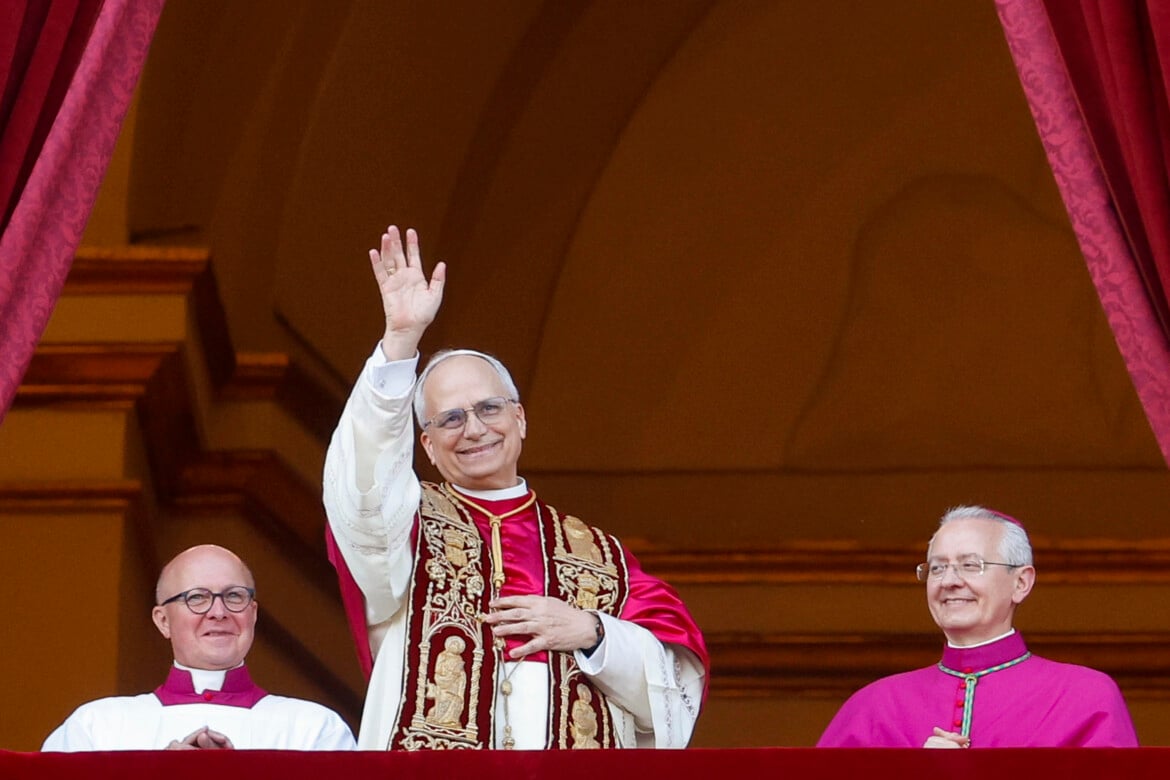Commentary
Don’t expect half-truths from an Augustinian pope, including on militarization
An Augustinian Pope will take every word and plumb its depths. He will grieve less over “consumerism” than over the inconsistency, incoherence and scattered nature of our lives, the unforgivable distraction with which we throw our lives away, deaf to a higher calling.

“I am a son of Saint Augustine, an Augustinian.” This is how the new Pope introduced himself to the world, and the filial note struck by “son” carries more intimacy than a simple reference to his membership in a religious order. Identifying oneself as a descendant is certainly something of great depth for a man of the cloth, yet in this case it also hearkens to a more universal and secular lineage. One can be an Augustinian friar, as Luther was, but one can also be an Augustinian philosopher, as Descartes, Pascal, Arnauld, Leibniz, Husserl and Edith Stein all were, each to their own extent.
Augustine’s books forged the language of European philosophy for a millennium after his death. His Dialogues, Soliloquies, Commentaries, exegetical, polemical and mystical writings shaped the universal language of humanistic research, Latin, down to the innermost logic and grammar of the modern languages that inherit it. And his three masterpieces – Confessions, On the Trinity and The City of God – also laid out the outlines of the subjects of metaphysics: the soul, God and the world. They set up the pillars of the later tradition, marking the domains of “special metaphysics”: psychology and morality, theology, philosophy of history. Their Latin has molded our philosophical thinking far more than our biblical theology, while Augustine also made each biblical word explode into a myriad of symbols. In book 13 of the Confessions, he teaches that the only forbidden reading is the uninspired one.
What, then, can a Pope do with philosophy and inspiration? A lot, I believe. First of all, this offers a formidable antidote to the literalism of fundamentalists of every possible stripe, unbelievers and cynics included. Where the spirit gives life, the letter kills – and that is no metaphor, in an age when Netanyahu and his ministers are committing genocide while raving over the words of the Bible. Since time immemorial, the names of God, written on military banners, have been turned into murderous words. And we don’t have to reach for that extreme: it’s enough to think of the creationist theories circulating widely among Leo XIV’s compatriots. Nearly half of Americans believe the pages of Genesis are a treatise on paleoanthropology, and wayward schools teach Intelligent Design instead of standard biology and evolution. While it was a Jesuit, Teilhard de Chardin, who normalized evolution for Catholics, 1,500 years earlier Augustine was already laughing at the folly of those who ask what God was doing “before” creating the world – as if there could be time without a world, and as if time were not, like space, a dimension of the world. His thought ended up presaging Leibnizian and later Einsteinian relativity.
But history supplies even sharper examples. When Alaric’s Goths sacked Rome in 410, Augustine began to write The City of God, offering a beacon of light in the face of collapse and a new understanding of “creation.” For him, the term means continuous generation of the new, ever since humankind appeared on the scene: cities and wars, law and crime, luxury and misery, the Divine Comedy and artificial intelligence. In short: history. Time is no longer merely a moving image of eternity, retracing the perfect cycles of the heavens. And our lives are no longer merely pale copies of the divine models and of the gods themselves. Time makes every event irreversible and every life unrepeatable: it makes every particular thing one-of-a-kind. It turns existence into a very weighty matter, just like the responsibility we bear for it, for our own dying and our power to kill. To be or not to be: at every point and every moment, we decide who we are, what we make of ourselves, of others, of creation. We are the causes of all evil, but deficient causes, permeated by nothingness and prone to taking the ego for God.
An Augustinian Pope will take every word and plumb its depths. He will grieve less over “consumerism” than over the inconsistency, incoherence and scattered nature of our lives, the unforgivable distraction with which we throw our lives away, deaf to a higher calling. He will not avert his gaze from our overgrown little garden on Earth and locate the solution in Heaven, because the two cities are intermingled and the city of God is “a pilgrim on earth,” among the first expressions this Pope has used in public. Hence the “disarmed and disarming” peace that many have hailed as his vision of the promised land, and ours.
“Believe so that you may understand,” Augustine’s quintessential motto, turns faith into a quest for intelligence and ethics a ruthless investigation into the soul’s deceitful appearances and its most diabolical power, the capacity to lie to itself and suppress the truth. One can also lie by weaponizing words, while truth disarms when it is whole. An Augustinian Pope should never speak half-truths, for they are the vilest of lies. A compelling confirmation of the Pope’s chosen approach came in these days of summits and massacres, in his appeal on Saturday to the diplomatic corps accredited to the Holy See: “There must also be a resolve to halt the production of instruments of destruction and death,” in order to “eliminate the root causes of all conflicts and every destructive urge for conquest.”
Originally published at https://ilmanifesto.it/agostiniano-e-senza-mezze-verita on 2025-05-18
